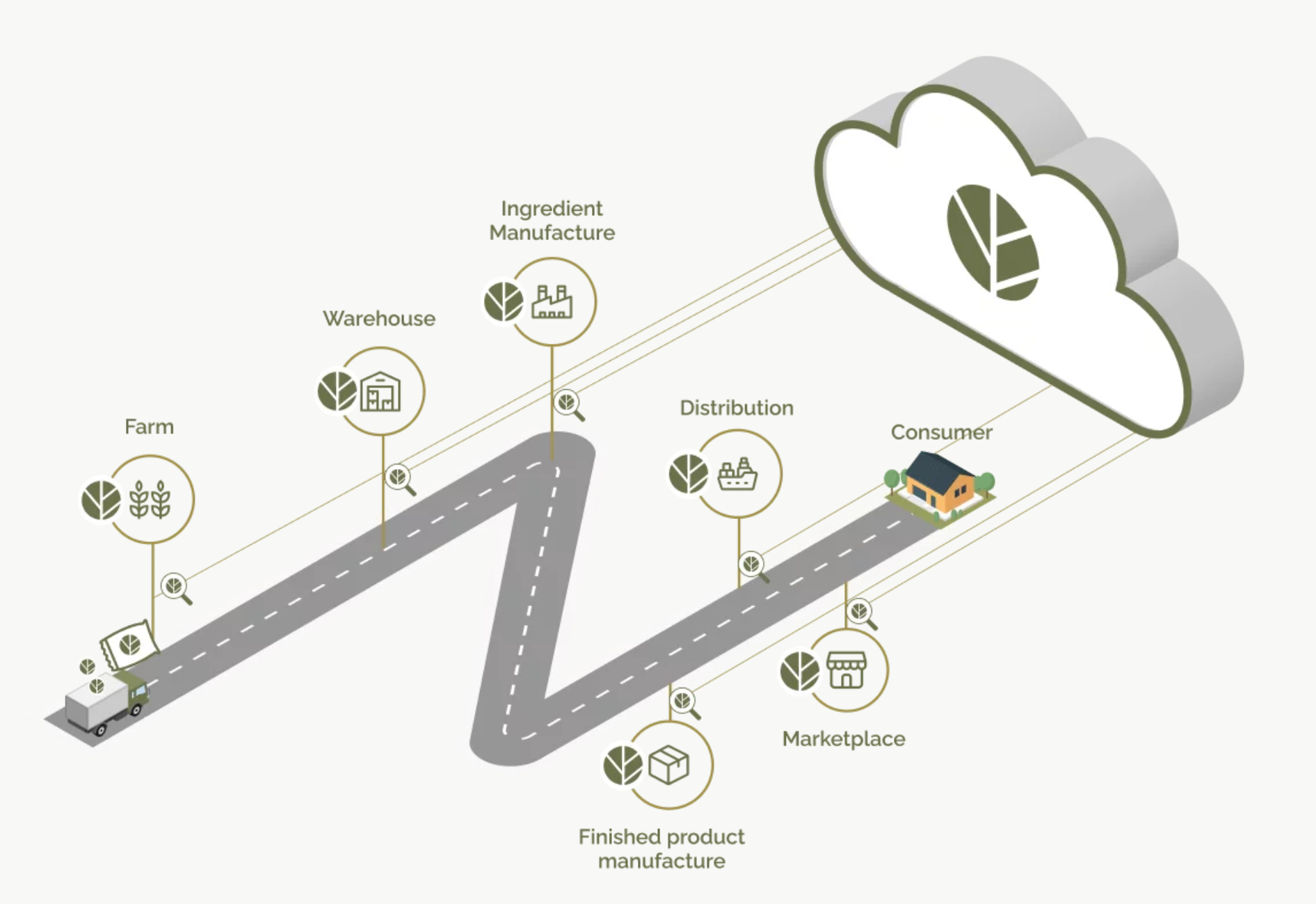The food industry is under immense pressure to balance consumer demand for transparency, regulatory compliance, and the fight against food fraud. As global supply chains expand, so do their vulnerabilities, with food fraud alone costing the industry over $50B annually. However, innovative cleantech solutions are reshaping the way we trace food from farm to table, offering new potential for traceability solutions in a market mostly dominated by incumbents such as IBM and Nestlé.
Emerging innovators, such as Natural Trace and Oritain, are carving out niches with groundbreaking technologies inspired by fields as diverse as COVID-19 tracking and police forensics. Their innovations, coupled with market drivers like regulation and consumer demand for sustainable practices, are redefining food traceability and tackling food waste and carbon emissions in unprecedented ways.
Tackling Food Waste and Fraud with Technology
Food traceability isn’t just about safety; it’s a powerful tool for sustainability. By providing visibility into supply chains, traceability technologies could reduce global food waste by up to 30%, which is a vital step in cutting the $1T annual cost of food waste and the greenhouse gas emissions it generates. Moreover, improved logistics and resource management reduce inefficiencies in food transport, further slashing emissions.
While traditional traceability methods often fail to deliver comprehensive solutions, the industry is gradually shifting from linear track-and-trace systems to end-to-end transparency. This shift not only addresses concerns like mislabeling—40% of shrimp in the U.S., for example, is mislabeled—but also builds consumer trust.
Natural Trace: Innovation Rooted in Pandemic Technology
Natural Trace has developed a unique solution to address these challenges. Instead of relying on packaging or external markers, the company’s NaturalTag technology integrates directly with the food itself. This natural, inert, and invisible tag is derived from non-genetically-modified ingredients and serves as an in-product bio barcode. This innovative approach ensures that the tag is a part of the product and cannot be removed, providing a secure method of traceability throughout the supply chain.
Natural Trace Biotag Diagram

Natural Trace’s three-part system consists of:
- NaturalTag, added in tiny quantities to food products at various stages of the supply chain
- NaturalDetect, a qPCR-based protocol inspired by COVID-19 tracking technology which allows the tags to be detected at any point in the supply chain
- NaturalCloud, a digital platform that compiles data and insights on the product’s journey, offering geolocation and a dashboard interface for tracking
The technology is particularly relevant in food matrices where fraud risks are high, such as coffee, honey, seafood, and nuts. In the nutraceutical space, demand for this technology is growing as companies seek to verify the authenticity of their ingredients. Natural Trace’s subscription-based model allows growers, distributors, and manufacturers to leverage its cloud platform for a comprehensive traceability solution and aligns with evolving regulations such as the EU Deforestation Regulation (EUDR), which demands robust supply chain transparency.
Oritain: Forensic Science Meets Food Traceability
Whereas Natural Trace’s innovation was inspired by pandemic-related tracking technology, Oritain looks to the world of police forensics. Oritain’s technology is grounded in the forensic science used to solve criminal cases, such as tracing the origin of drugs or solving homicide investigations. By applying similar techniques, Oritain tests the innate qualities of food products, using environmental trace elements and isotopes absorbed by plants and animals to create a “chemical fingerprint” that verifies the origin of a product. This forensic method eliminates the need for external traceability markers, instead relying on the product’s inherent properties to determine whether it was sourced from its claimed origin.
Oritain Process Diagram

Oritain’s strongest foothold lies in commodities like red meat, dairy, and coffee—industries increasingly under regulatory scrutiny. Additionally, the start-up has a heavy emphasis on protecting New Zealand’s most valued agrifood exports, which often are victim to food fraud origin cases, such as apples, kiwis, and red meats. Beyond food, Oritain has expanded into textiles, looking to become a one-stop-shop for large multi-industry distributors.
The Path Forward
Natural Trace successfully commercialized its technology within the past year, marking a critical step in bringing its NaturalTag system to industries grappling with food fraud and sustainability challenges. The company is already exploring opportunities to expand beyond the food sector, targeting the personal care industry where traceability and safety are increasingly valued. Meanwhile, Oritain achieved a major milestone by raising $57M in growth equity from Highland Europe and Long Ridge in July 2023, to fund its expansion into new geographical markets.
The food traceability market is becoming saturated with established technologies like blockchain, IoT, and cloud computing, making it difficult for start-ups to stand out. Incumbents like IBM Food Trust dominate, leaving little room for innovators to gain much market share in these spaces. Innovators like Natural Trace and Oritain have the potential to succeed by addressing niche markets and offering unique approaches but will likely need to embed solutions with corporates and continue to capitalize on opportunities to expand their technology usage in niche spaces to succeed in the long run.


